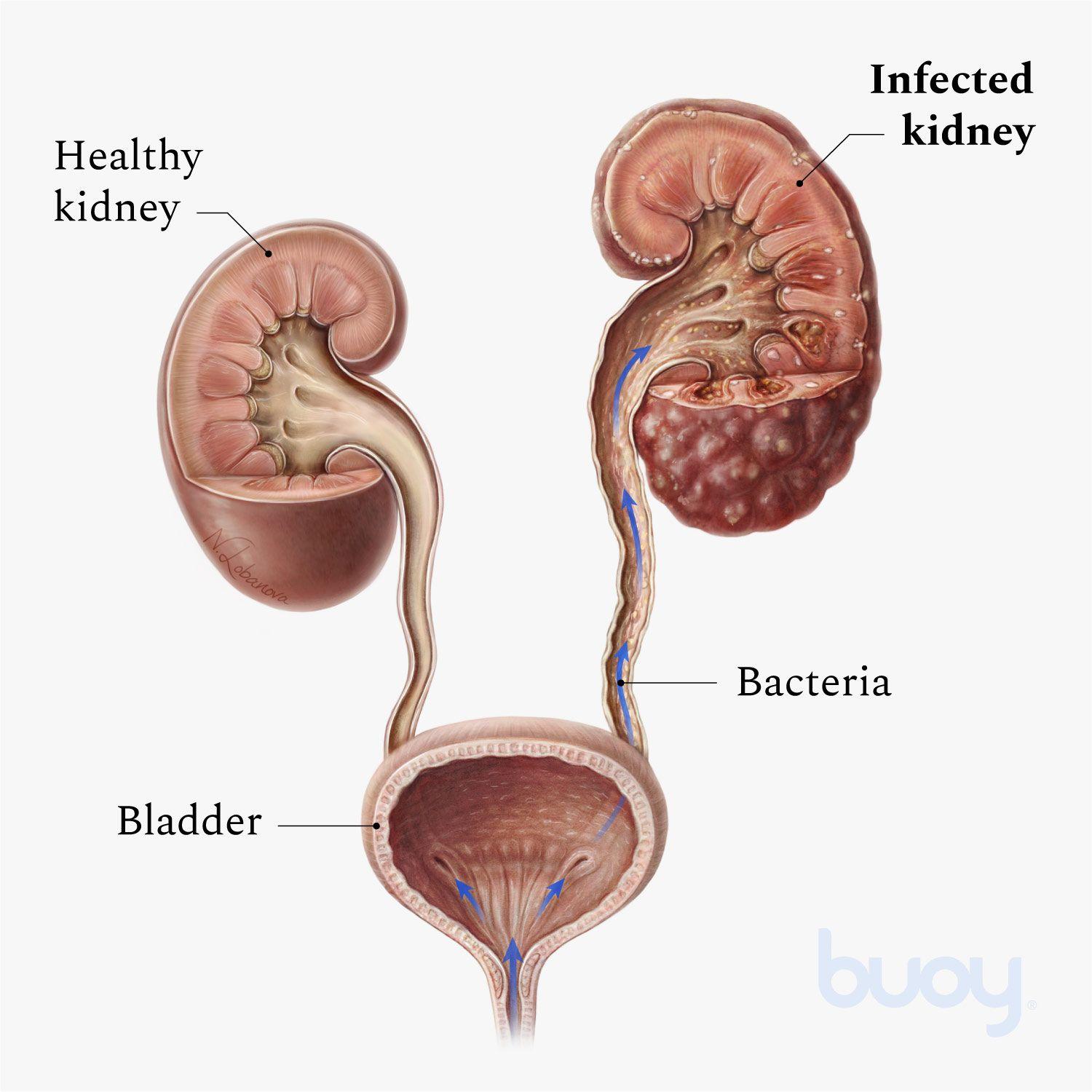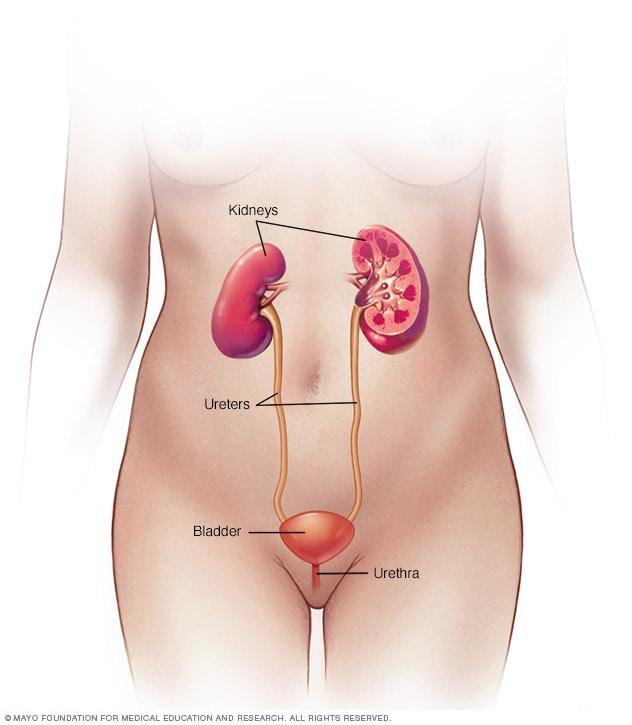Title: Understanding Kidney Infections: A Hidden Health Concern
Introduction:
Nestled deep within the human body, the kidneys serve as vital organs, filtering waste and balancing essential fluids. Yet, despite their crucial role in maintaining our overall health, they often go unnoticed—until something goes awry. Kidney infections, or pyelonephritis, are a serious yet frequently overlooked health issue that can arise from a seemingly innocuous urinary tract infection. This article aims to illuminate the complexities of kidney infections, exploring their causes, symptoms, and treatments, while emphasizing the importance of awareness and early intervention. As we delve into this often-misunderstood condition, we seek to empower readers with knowledge, encouraging proactive measures to safeguard their renal health. Join us on this journey to uncover the hidden challenges posed by kidney infections and the steps we can take to combat them.
Understanding the Basics of Kidney Infections and Their Causes
Kidney infections, medically known as pyelonephritis, occur when bacteria enter one or both kidneys, leading to inflammation and infection. Understanding the fundamentals of these infections is crucial, as they can escalate quickly if left untreated. Common symptoms include fever, back pain, and frequent urination, often accompanied by a burning sensation. While anyone can develop a kidney infection, certain groups are at higher risk, including pregnant women, individuals with urinary tract abnormalities, and those with weakened immune systems.
The primary cause of kidney infections is bacteria that typically originate from the lower urinary tract, making their way up to the kidneys. Factors contributing to this process include:
- Urinary Tract Infections (UTIs) – UTIs can spread to the kidneys if not adequately treated.
- Kidney Stones – Obstructions can create a favorable environment for bacterial growth.
- Structural Abnormalities - Congenital or acquired anomalies can impede urine flow, increasing infection risk.
Table: Common Risk Factors for Kidney Infections
| Risk Factor | Description |
|---|---|
| Female Gender | Women are more prone due to shorter urethras. |
| Age | Older adults may have more complications and UTIs. |
| Diabetes | High glucose levels can enhance bacterial growth. |
Identifying Symptoms: How to Recognize a Kidney Infection Early
Recognizing the early signs of a kidney infection can be crucial in preventing more severe health issues. Some common symptoms to watch for include:
- Frequent Urination: An urgent need to urinate more often, even if little comes out.
- Painful Urination: A burning sensation or discomfort while urinating.
- Lower Back Pain: Dull ache or sharp pain in the lower back or sides, often linked to kidney issues.
- Fever and Chills: A sudden rise in body temperature accompanied by chills can indicate an infection.
- Cloudy or Foul-Smelling Urine: Changes in urine color and odor can signal an infection.
If you notice these symptoms, it’s essential to take them seriously. Early detection and treatment can help to alleviate discomfort and prevent complications. It may also be helpful to keep track of additional signs, such as:
| Symptom | Description |
|---|---|
| Nausea | Feeling sick to your stomach. |
| Fatigue | Unusual tiredness or lack of energy. |
| Confusion | Feeling disoriented or having trouble concentrating. |
Recognizing these symptoms early can not only enhance your comfort but also lead to timely medical intervention. If you experience a combination of these signs, consider consulting a healthcare professional to rule out a kidney infection and ensure your health is prioritized.
Diagnosis Methods: Tests and Procedures for Accurate Detection
Diagnosing a kidney infection involves a combination of clinical evaluations and laboratory tests to ensure accurate identification. Healthcare professionals typically begin with a thorough medical history and physical examination, assessing symptoms such as fever, flank pain, and changes in urination. Following this initial assessment, several tests may be employed, including:
- Urinalysis: A simple urine test that checks for the presence of bacteria, blood, or pus.
- Urine Culture: This test isolates the specific bacteria responsible for the infection, helping to tailor antibiotic treatment.
- Blood Tests: Blood samples may be taken to assess kidney function and detect any underlying issues.
In addition to these tests, imaging procedures can provide further insight into the condition of the kidneys. Techniques such as ultrasound or CT scans can reveal structural abnormalities or complications related to the infection. Below is a table summarizing the common diagnostic methods:
| Diagnostic Method | Purpose |
|---|---|
| Urinalysis | Checks for signs of infection in urine. |
| Urine Culture | Identifies the specific bacteria causing the infection. |
| Blood Tests | Evaluates kidney function and overall health. |
| Ultrasound | Visualizes kidney structures to detect abnormalities. |
| CT Scan | Provides detailed imaging of the kidneys and surrounding organs. |
Treatment Options: From Medications to Lifestyle Adjustments
When it comes to treating a kidney infection, a combination of medications and lifestyle adjustments can prove effective in managing and alleviating symptoms. Antibiotics are the cornerstone of treatment, targeting the bacteria responsible for the infection. Commonly prescribed antibiotics include:
- Ciprofloxacin – typically used for more complicated infections
- Trimethoprim-sulfamethoxazole – effective for uncomplicated cases
- Amoxicillin – suitable for pregnant women
In addition to medication, certain lifestyle changes can help support recovery and prevent future infections. Staying well-hydrated is essential, as it helps flush out bacteria from the urinary tract. Incorporating a diet rich in fruits and vegetables can enhance overall kidney health. Consider the following adjustments:
| Lifestyle Adjustment | Benefits |
|---|---|
| Increased Water Intake | Helps flush out toxins and bacteria |
| Limit Caffeine and Alcohol | Reduces irritation of the bladder |
| Regular Exercise | Boosts immune function and overall health |
Preventive Measures: Tips to Reduce Your Risk of Kidney Infections
Kidney infections can be both painful and disruptive, but there are several proactive steps you can take to minimize your risk. One of the most effective strategies is to stay well-hydrated. Drinking plenty of water helps flush out bacteria from your urinary tract, reducing the likelihood of infection. Incorporating cranberry juice into your diet may also provide protective benefits, as it contains compounds that prevent bacteria from adhering to the bladder walls. Additionally, make it a habit to urinate when you feel the urge and ensure complete emptying of your bladder to eliminate any residual bacteria.
Maintaining good hygiene is crucial in warding off infections. Always wipe from front to back after using the toilet, especially for women, to prevent bacteria from the anal area spreading to the urethra. It’s also advisable to wear breathable cotton underwear and avoid tight-fitting clothing to promote airflow. If you regularly use diaphragms or spermicidal agents for contraception, consider discussing alternative options with your healthcare provider, as these can increase the risk of urinary tract infections. Regular medical check-ups can help keep your kidney health in check, so do not hesitate to reach out to a professional for advice tailored to your specific needs.
When to Seek Help: Knowing When Urgent Care is Necessary
Understanding the signs that indicate a kidney infection is urgent can be crucial for your health. If you experience symptoms such as severe back pain, high fever, or nausea, it’s essential to seek medical attention promptly. Additionally, if you notice blood in your urine or experience persistent abdominal pain, these could be indicators that your condition is worsening and may require immediate care. Remember, the earlier you address these symptoms, the better your chances are of a swift recovery.
Here are some other symptoms that warrant a visit to urgent care:
- Frequent urination that becomes painful or urgent
- Chills or shaking that accompany fever
- Cloudy or foul-smelling urine
- Fatigue or weakness that is unusual for you
In the event of a kidney infection, it’s important to take these warning signs seriously. Below is a quick reference table summarizing symptoms and their urgency:
| Symptom | Urgency Level |
|---|---|
| Severe back pain | High |
| Blood in urine | High |
| Fever over 101°F | Moderate |
| Persistent abdominal pain | High |
| Nausea and vomiting | Moderate |
Q&A
Q&A: Understanding Kidney Infections
Q1: What exactly is a kidney infection?
A: A kidney infection, medically known as pyelonephritis, is an inflammation of one or both kidneys, often caused by bacteria that have traveled up the urinary tract from the bladder. This condition can lead to serious complications if not treated promptly.
Q2: What are the common symptoms of a kidney infection?
A: Symptoms can vary but often include fever, chills, a frequent urge to urinate, cloudy or strong-smelling urine, pain in the side or back, and sometimes nausea or vomiting. If you experience these signs, it’s essential to seek medical attention.
Q3: Who is at risk for developing a kidney infection?
A: While anyone can develop a kidney infection, certain individuals are at higher risk. This includes women (due to a shorter urethra), pregnant women, individuals with urinary tract obstructions, those with weakened immune systems, and people who have recently undergone urinary tract surgery.
Q4: How can kidney infections be prevented?
A: Prevention strategies include staying well-hydrated, practicing good personal hygiene, urinating after sexual intercourse, avoiding irritants like caffeine and alcohol, and managing existing health conditions that could lead to urinary tract issues.
Q5: How is a kidney infection diagnosed?
A: Healthcare providers typically diagnose a kidney infection through a combination of medical history review, physical examination, and laboratory tests. A urine sample is often analyzed for bacteria, white blood cells, and other indicators of infection.
Q6: What treatments are available for kidney infections?
A: Treatments usually involve antibiotics to combat the bacterial infection. In more severe cases, hospitalization may be necessary for intravenous antibiotics and fluids. Pain management and increased fluid intake are also important elements of treatment.
Q7: Can kidney infections lead to complications?
A: Yes, if left untreated, kidney infections can result in serious complications such as chronic kidney disease, kidney damage, or sepsis, a life-threatening response to infection. Prompt medical intervention is crucial to prevent these outcomes.
Q8: What can you do if you suspect you have a kidney infection?
A: If you suspect a kidney infection, it’s important to contact a healthcare provider as soon as possible. Early diagnosis and treatment can significantly improve outcomes and reduce the risk of complications.
Q9: Are there lifestyle changes that can support kidney health?
A: Absolutely! Maintaining a balanced diet, staying hydrated, exercising regularly, and avoiding smoking can all contribute to kidney health. Regular check-ups can help monitor kidney function, especially for those at higher risk.
Q10: Is there any long-term impact of having a kidney infection?
A: Most people recover fully from a kidney infection with proper treatment. However, recurrent infections may indicate underlying issues that need to be addressed. It’s important to follow up with your healthcare provider to ensure your kidneys remain healthy.
This Q&A aims to provide a comprehensive yet accessible overview of kidney infections, emphasizing the importance of awareness and timely action.
Future Outlook
navigating the complexities of kidney infections requires a blend of awareness, timely intervention, and a commitment to overall kidney health. From recognizing the subtle signs of infection to understanding the potential implications of untreated issues, knowledge is your best ally in this journey. As we wrap up this exploration, remember that while infections can be daunting, they are also manageable with the right approach. Prioritize hydration, maintain good hygiene, and don’t hesitate to seek medical advice at the first sign of trouble. Your kidneys play a vital role in your overall well-being, and by taking proactive steps, you can safeguard your health and ensure a brighter, healthier future. Here’s to thriving kidneys and the peace of mind that comes with knowing how to care for them!
